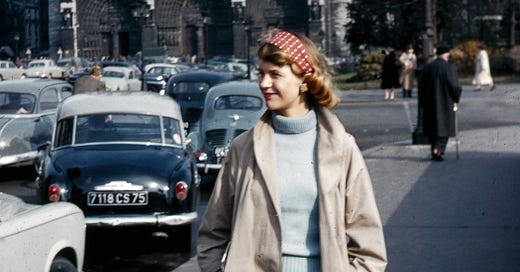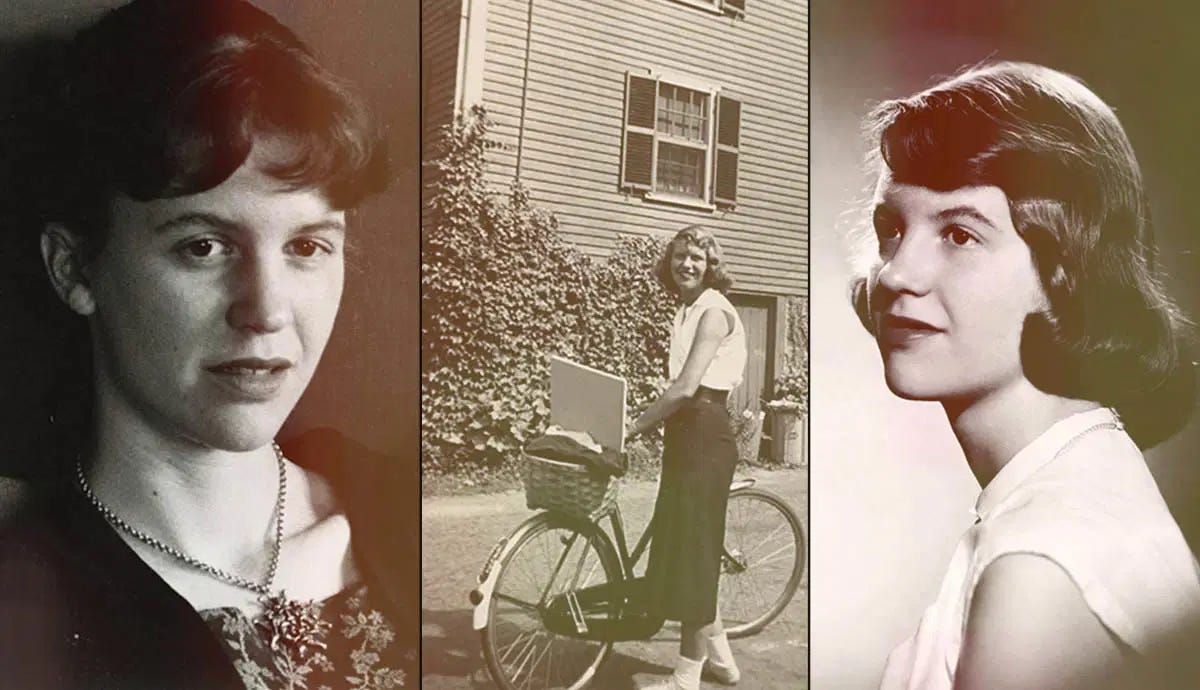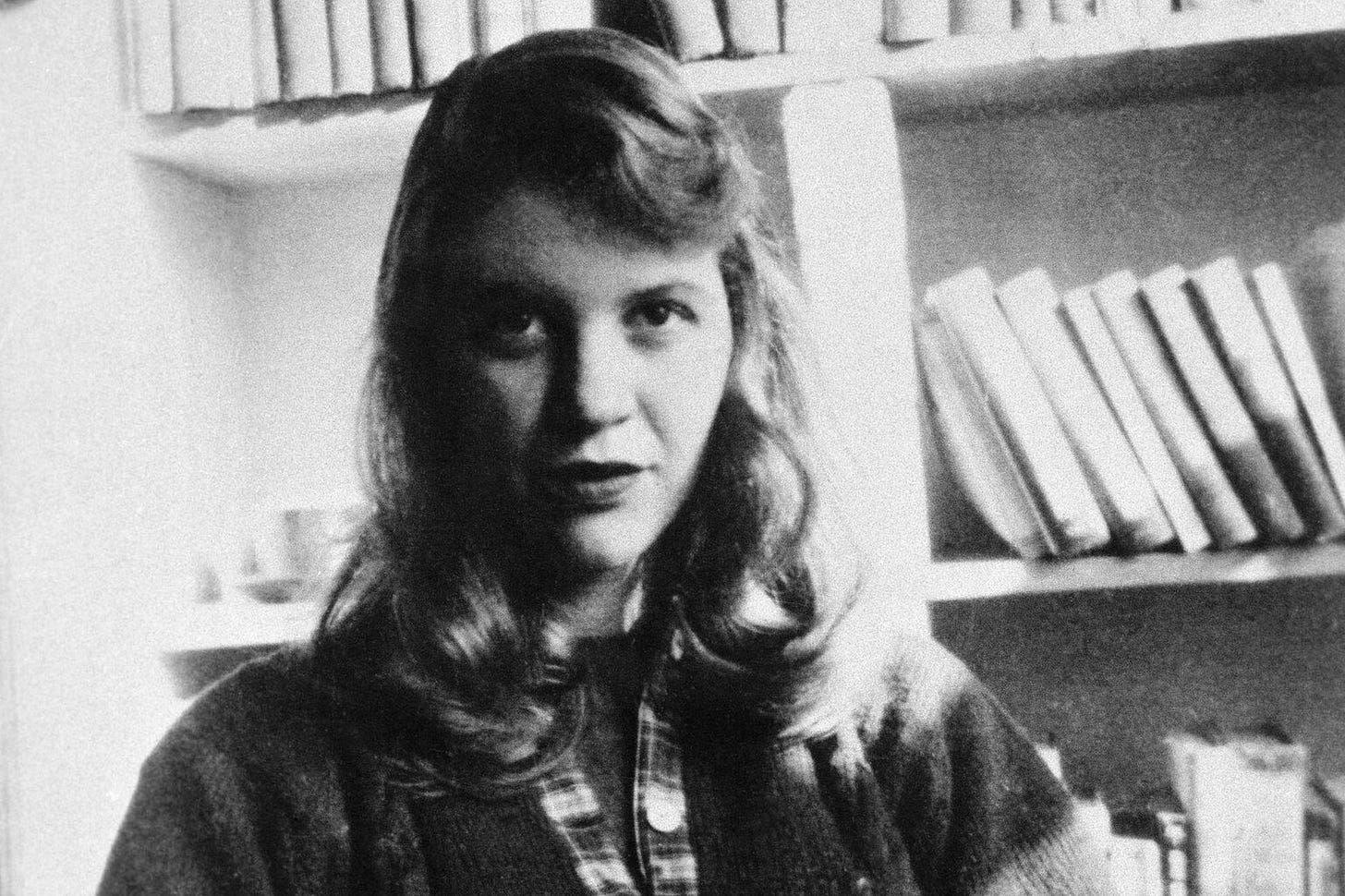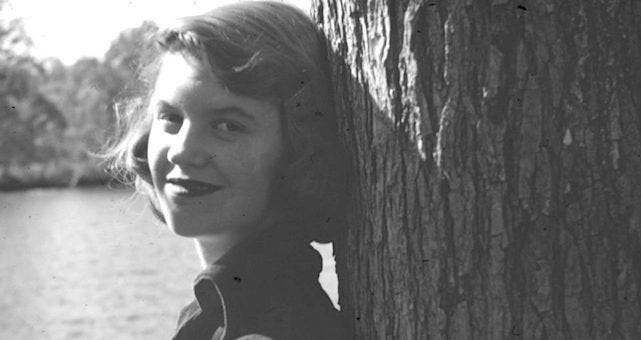If Sylvia Plath Had Instagram, Would She Have Survived?
And what my own Instagram journey taught me about art, loneliness, and leaving
If Sylvia Plath had Instagram, would she have posted her sadness in Reels? Would she have curated her grief through vintage filters, written poetic captions with the right blend of rawness and restraint, trended for all the wrong reasons, or disappeared entirely, buried between cooking tutorials and 10-second lip-syncs?
Would she have hashtagged #MentalHealthAwareness, filtered her grief in Clarendon, and waited for likes that couldn’t hold her together? Would the algorithm have lifted or buried her poetry between cat videos and influencer ads?
It’s a question that haunted me one afternoon while I scrolled, numb and unfocused, through my own Instagram feed. I had seen a meme romanticizing Plath’s pain, and for a second, I paused — as if I knew her. As if I could picture her staring into the glassy surface of a phone screen, waiting for affirmation from strangers. As if I hadn’t, in some form, done the same.
Sylvia was a woman whose brilliance flickered in a world that didn’t know how to hold her. And I, once a girl who found magic in Instagram, now feel invisible on the very app that once made me feel most seen.
Instagram wasn’t always this draining for me. In the beginning, it felt like magic. I was just a girl posting awkward poetries, heavily filtered bookstagram photos, and half-nervous captions.
I made sweet friendships in comment sections, felt giddy when big authors messaged me and cried over early copies of books sent by publishers. There was this heady joy in it all — a mix of discovery, connection, and that wide-eyed belief that maybe, just maybe, I was part of something beautiful.
Then the numbers started climbing. 10,000 followers. Viral reels. A million views on something I barely edited. Suddenly, I wasn’t just sharing — I was performing.
My feed turned into a perfectly arranged grid. Aesthetic became currency. And somewhere between all the curation and calculation, I lost the girl who once posted just for joy.
The pressure came quietly. Post at the right time. Use the right music. Stay consistent. Engage. Create. Perform. Repeat. I kept at it, thinking it would feel fulfilling again. It didn’t. The likes didn’t comfort me. The shares didn’t understand me. I was loud online but lonelier than ever.
The very reason I joined — to share stories, find people, and be real was drowned out by the quiet hum of insecurity, the creeping jealousy, the doomscrolling. I lost the voice that once felt so natural.
Would Sylvia have survived this version of the world? Would the internet have saved her or made her disappear faster? Maybe she would’ve thrived, found her people, and trended for the right reasons. Maybe there would’ve been comment sections full of love.
But I keep thinking about how cruel these platforms can be — how easy it is to go viral and still feel invisible. How even the most sensitive voices are expected to fit inside 60 seconds and 2200 characters. How heartbreak becomes content.
We’ve long romanticized the lonely women writers. Plath, Woolf, Sexton — all broken and brilliant, all gone too soon. Their pain is stitched into their art, and their legacies often feel more about their tragedies than their triumphs.
And now? That myth lives on, but it wears different clothes. Today, we “perform” our sadness. We shape it into carousels, package it with calming fonts and soothing captions, and hope someone in the void gets it while quietly checking the view count. It’s vulnerable but curated. It’s grief, but optimized for engagement.
Would Sylvia have gone viral reading Lady Lazarus on TikTok? Would her DMs have been filled with soft messages and “you okay?” texts from strangers?
Or would it have crushed her faster?
Would the comparisons, the pressure to be palatable sad, the filtered feminism of the app? Would it all have been too much? Likes don’t save lives. Going viral doesn’t mean being understood. And sometimes, the most heartbreaking place to be is surrounded by attention that still feels like loneliness.
I don’t think Instagram would’ve saved Sylvia. I think it would’ve demanded she be brand-safe, hashtag-friendly, and self-aware enough to package her sadness neatly. I think it would’ve praised her vulnerability while punishing her for being too much. I think it would’ve exhausted her.
And if I’m honest, it nearly exhausted me. One day I just stopped. No announcements, no drama. I logged out. Disabled temporarily.
The silence was strange at first — like the absence of background noise you didn’t realize was always there. But slowly, I remembered what my voice sounded like when it wasn’t performing. I started writing again, not for reach, but for return. Not to be seen, but to feel.
Sometimes, I still miss it. The tiny dopamine hits, the comments, the invitations, the “you’re my favourite” messages. But I missed myself more. The real me. The one who writes because she can’t not. The one who started all this because she believed stories mattered — not just the ones that went viral, but the quiet, trembling ones, too.
If Sylvia Plath had Instagram, maybe she would’ve found some comfort in strangers. Maybe she would’ve become a literary influencer, doing Q&As about The Bell Jar under moody lighting. Maybe she would’ve DM’ed Anne Sexton memes and left emoji comments on Virginia Woolf’s feed. But I doubt she would’ve survived it. I doubt I would’ve, either, if I hadn’t stepped back when I did.
There’s a difference between being seen and being held. And the algorithm doesn’t know how to hold you.
I think she would’ve felt what many of us do: that the screen offers connection, but not comfort. That the metrics feel like love until they don’t. That the performance of pain rarely makes space for its healing.
So here’s what I know now — and what I try to remember every time I’m tempted to return to the grid:
- You don’t have to be seen to be real.
- You don’t have to post to be a poet.
- And some of your best writing may never need a like to matter.
P.S. Have you ever had to leave something behind to protect your voice? I’d love to hear your story. Reply or comment below.
Thanks for reading!
Ciao,
Fathima








I saw the title and went NOOO WAYYY SHE IS SURVIVING THIS SHIT HOLE. Sylvia was so vulnerable she would've felt suffocated too i feel. She'd probably delete all her socials good lord.
As for me, I've gone to not posting for months or just occasionally dropping 2 reels a months if I feel like it or 20 in a day if I want to. I am tired of the whole branding thing. Social media has been my escape since I was 13-14 and my medium of self expression and I have decided I'm not going to let stupid expectations of the algorithm take that away from me you know? If my video reaches 1 million, id be happy, if it reaches 100 people I'd be happy too. Because to me happiness comes from the fact that i got to express myself in the way I wanted and not how its being perceived. I am not saying it's easy for me though, there are days when I do check my likes and views but overtime it has became less frequent alhamdulillah.
I took this decision with my art account even before. Art is waaaayyy too precious to me and there was no way I was gonna let algorithm come in between. I do like to post it because it helps me keep a track of all the times I sat to paint and my prafctice paintings in general. I get like 100 views or 5 likes at times and alhamdulillah alhamdulillah alhamdulillah I am least bothered about it and still proud of it at the same time.
Inshallah we all find peace in whatever we find peace in 🎀🩷
P.s. loved reading your post